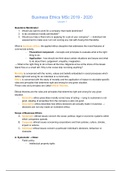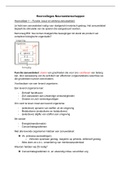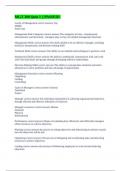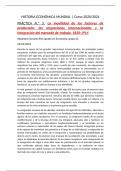College aantekeningen
Lecture notes - Business Ethics - Extensive overview!
- Instelling
- Rijksuniversiteit Groningen (RuG)
- Boek
- Ethics and Business
An extensive overview of the lectures, includes all the important slide-information, but also extra information! Useful to make the assignments and final exam!
[Meer zien]













